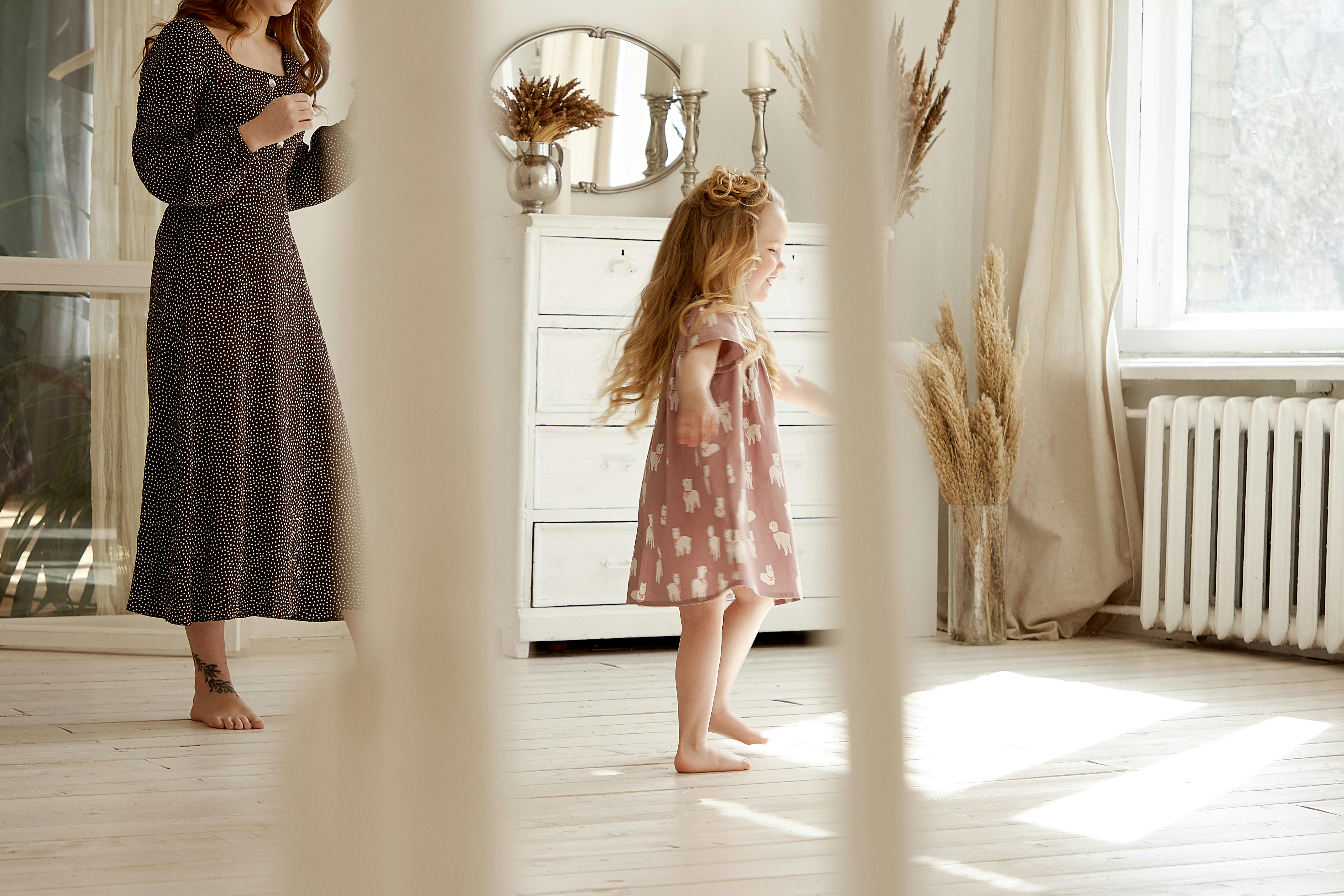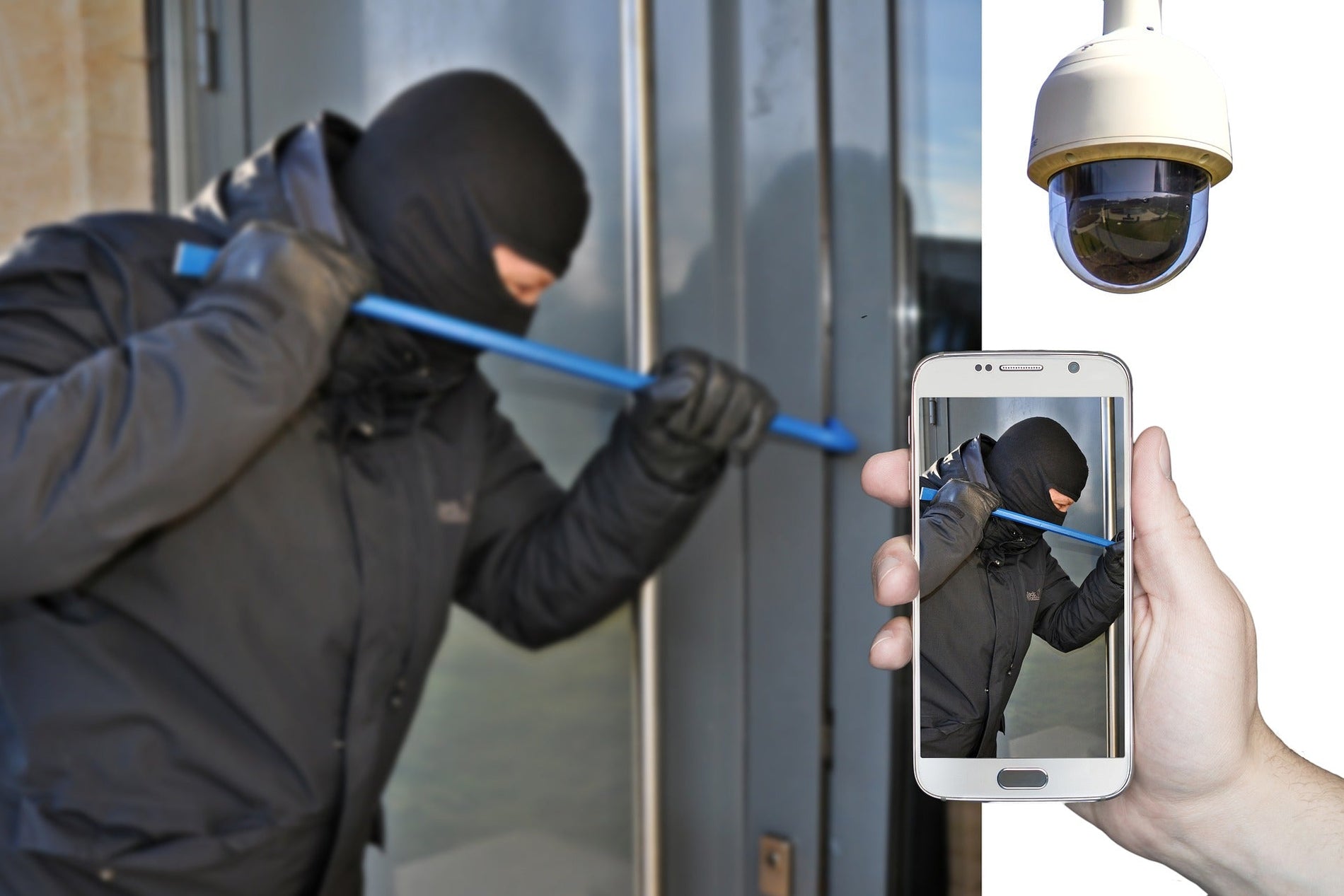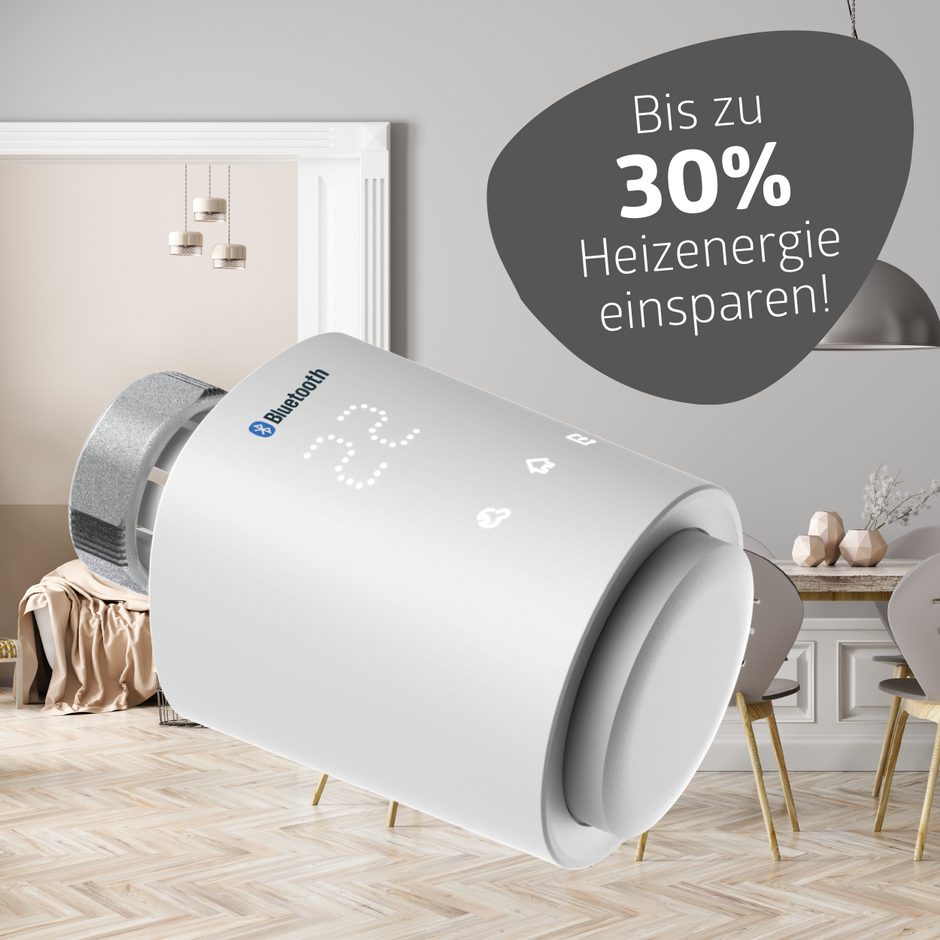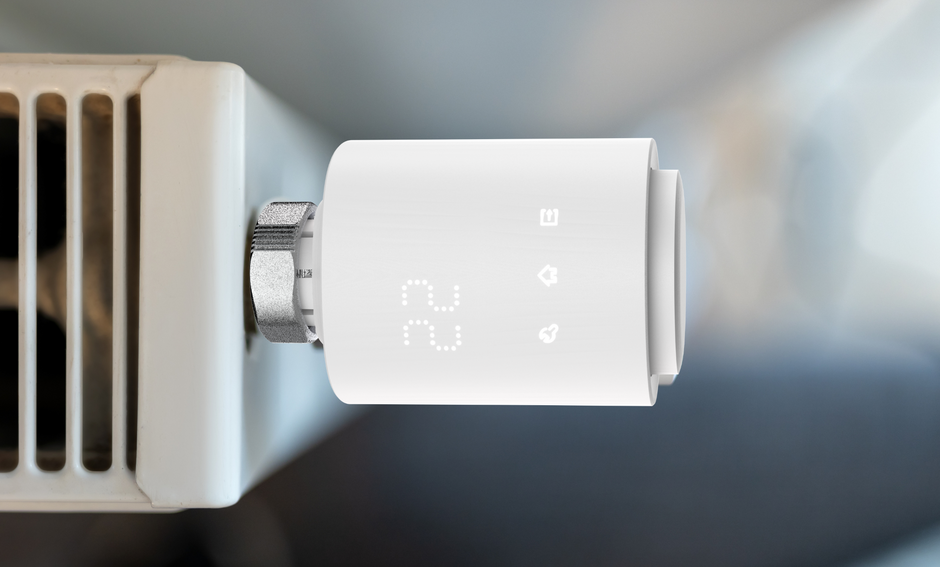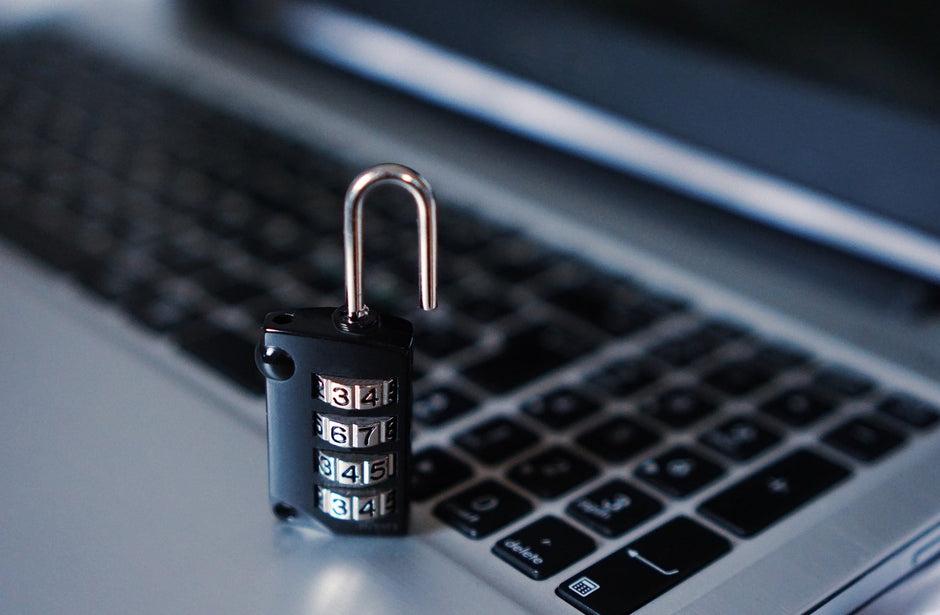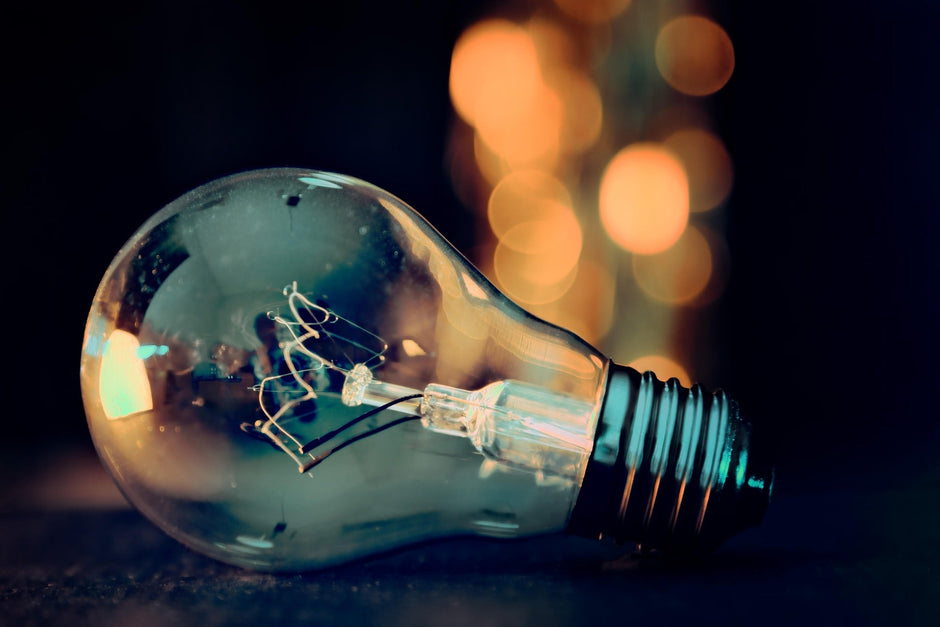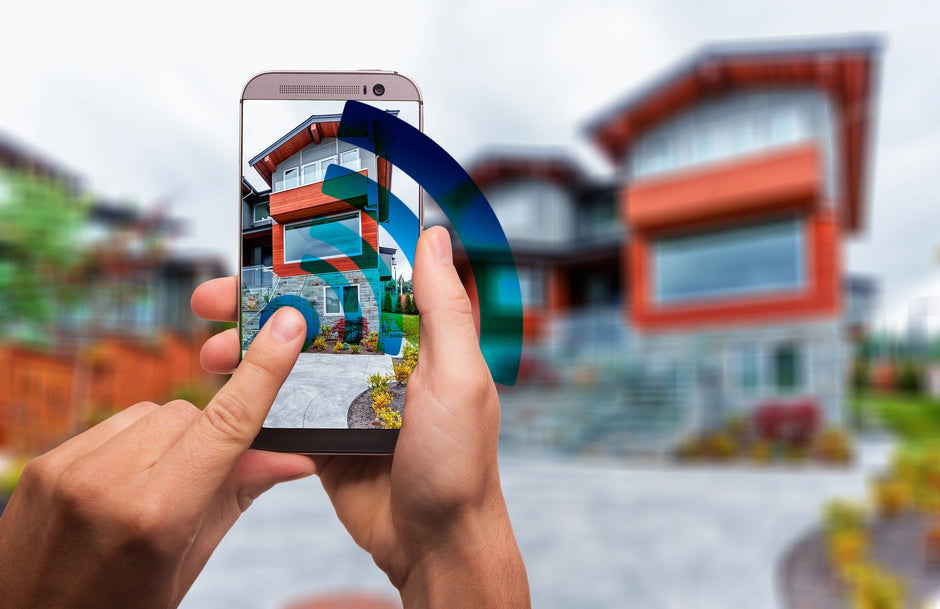The number of burglaries in Germany is declining significantly. This is due in no small part to modern security technology such as smart home alarm systems and intelligent security components. Read this article to learn why installing them makes sense right now, what to consider before and after purchasing, and which devices further increase security.
Burglaries – material damage is not the worst
Security and the feeling of security are two different things. Most people feel safe and secure, especially in their own home. Because of this feeling, they often forgo special security measures and precautions. Sometimes that works out. But what if something does happen? What if a burglar manages to break into your house or apartment? It's not just about material damage from stolen valuables or destroyed doors and living spaces, but above all about the emotional damage such a break-in leaves behind. With electronic devices such as laptops or cameras, valuable family photos and important personal data are often lost. This emotional loss is often far worse than the material loss! Furthermore, a burglary is always a massive invasion of a victim's privacy – and leaves mental scars. But this could be easily avoided: with a modern smart home alarm system.
Why is modern security technology so important today?
Let's briefly examine the crime statistics as a data basis: At first glance, the numbers seem rather reassuring. Registered burglaries in Germany fell significantly again in 2017. The police recorded a total of 116,540 attempted and completed burglaries. In 2016, the number was 151,265. That's almost 23 percent less.
The Number of burglaries has declined for the first time in the last two years. This is due to improved security technology that deters or stops burglars.
This is not due to a waning interest of burglars, but rather to homeowners actively protecting themselves against attacks with modern security technology. A generally strong increase in demand for mechanical and electronic security measures was also confirmed by the Federal Association of the Security Industry (BDSW). Security technology and alarm systems do indeed have a positive effect. But what's the best option? A traditional alarm system, perhaps?
What are the benefits of conventional alarm systems?
You may have seen the external siren of wireless alarm systems on the facade of secured houses. This is a component of a "good old" alarm system that isn't intelligently networked. It's designed to deter burglars. The problem is: This type of alarm system warns when it's actually already too late, and the break-in has already occurred. By then, Grandma's gold jewelry might already be on new fingers, or doors, windows, and furnishings might be badly damaged – and the burglars might have probably long since fled. So, traditional alarm systems have little preventative effect. So, is it better to do nothing and rely on other "security concepts" that have proven successful in places like Hollywood?
Hmm, lying in wait yourself to deter thieves might not be the best idea. Especially since it's quite dangerous. Installing a smart home alarm system is much more worthwhile. It will make itself known as soon as burglars even try to get into the house. Or even if they enter the garden, the basement, or the driveway. Furthermore, a smart home alarm system offers numerous options for seamlessly integrating additional security components. This allows homeowners to have real-time images of their home sent to their smartphones or even speak to the intruder directly (e.g., via a two-way audio system). Anyone caught this way will usually quickly flee.
What does a smart home alarm system offer?
Modern alarm systems combine many of the security components mentioned above into a comprehensive system. These security systems can be customized and expanded with additional modules over time. A smart home alarm system usually requires a central unit that connects all the individual components.
Ideally, they can be connected to a smartphone app and alert residents to any irregularities in their home. If the worst comes to the worst, they not only provide evidence of the crime with video footage but also scare off burglars before they can act – with light or noise. With some smart security systems, you can even monitor what's happening in your home live at any time with the appropriate camera equipment.
Another thing to keep in mind: Smart systems must be flexible and expandable with numerous modules and components. These include smoke detectors and water detectors, for example, that you may want to integrate later. And of course, it would be nice if you didn't have to have studied security and network technology to install them properly.
Smart additional components for even more safety
As already described, there are many other components besides the actual alarm system that can increase the security of your home. These include window and door sensors, surveillance cameras, some of which are also available with night vision, presence simulations such as timers for lights and TVs, motion detectors for indoor and outdoor use, as well as automatically controlled blinds and smart access systems.
There are practical starter sets that operate according to a simple plug-and-play principle and contain preconfigured components. The basis for operation is a central unit through which all individual elements are networked.
What can smart security systems do that traditional ones can’t?
Conventional alarm systems rarely deter even the most seasoned burglar. They don't provide timely warning of an impending break-in. This is precisely where smart home alarm systems come into their own! Here are a few of their advantages:
Push notifications to your smartphone for unwanted visitors
Once door handles, locks, or windows in a smart home are equipped with sensors, a notification is immediately sent to the smartphone if someone tampers with the entrances. Optical sensors and smart rotary handles ensure this. They detect whether windows are open or closed. If an unauthorized person opens them, the system immediately triggers an alarm, and the owner receives a push notification via their smart home app. They can react immediately and call the police.
Motion detectors in the house
An additional enhancement is motion detectors in the house. You can activate them as soon as you leave the house. They then automatically detect whether someone is in the house, even if all the residents are absent. If so, they forward this information to the base station. Depending on the defined scenario, the base station can then turn on the lights in several rooms, ring the doorbell, play the dog's barking, or trigger an alarm via a siren. A burglar who suddenly finds himself in a brightly lit house or is frightened by the dog and siren will change his mind and leave the apartment. And that's ultimately what it's all about.
Attendance simulators
Burglars feel at home where there's no light. The logical solution to making things as uncomfortable as possible? That's right: SPOT ON! There are smart light switches, actuators, and wireless sockets that automatically turn on the lights or even simulate TV flickering while you're out. This simulates the presence of residents burglars usually prefer to avoid.
Protection from outside intruders is just one aspect of what smart home security technology offers. There are other threats lurking inside your home that you can counteract with smart technologies:
Protection against fire and flames
Smart, networked smoke detectors throughout your home protect you and your family from fires. Especially at night, when everyone is asleep and may not immediately notice that there's a fire in the house. Caution: Carbon monoxide is produced in fires and is odorless, so you can't smell it. Even before the fire is fully ignited, carbon monoxide can be fatal. This is why carbon monoxide detectors, which emit an audible signal when there is excessive carbon monoxide in the room, are particularly useful.
Smoke detectors are now mandatory in every household. However, there are differences here too: Intelligent smoke detectors interact with the other smart home components in your home. Smart shutters, for example, raise throughout the house as soon as a fire is detected. This allows residents to escape the house more quickly, and the fire department can also respond more quickly in extreme cases.
Vital tip : As long as the red emergency light in the smoke detector is lit, it is receiving power. If the red light is off, the device is not receiving power and the integrated emergency battery is also depleted. It's high time to replace it!
Protection against water
It's the ultimate nightmare: You're not home and a pipe bursts. Your apartment floods, and trouble is inevitable. Smart homes also have detectors for water from broken pipes or other types of flooding. This way, the worst can be prevented in time.
Indoor video surveillance
Of course, no one wants to be monitored 24/7 in their private spaces. But in some cases, a video camera is worth its weight in gold, for example, to see if the baby is sleeping peacefully, what the dog is up to, and whether even the darkest corners of the house are safe.
With regular updates, the smart home remains permanently secure
Most burglars are opportunistic: A tilted window, an open garage, or an unlocked door are all welcome opportunities for them. Homeowners need to be more vigilant to prevent thieves from getting ahead. Smart devices connected to a smartphone via a central control unit can help with this.
But what if your smartphone is stolen or lost? Or if burglars try to hack your smart home network? As with any software-based system with internet access, backing up your data and maintaining regular updates are a top priority. The latter, in particular, closes potential security gaps. Don't forget your Wi-Fi routers, smartphones, PCs, and tablets. It should go without saying that you should never disclose personal data. Then no third party will know when someone is home and when they aren't. We also recommend encrypting your device communications with AES-128 bit and restricting access as much as possible. Ideally, systems allow you to individually assign access (e.g., within your family) and revoke it again if necessary. Oh, and passwords that are a bit more complex than "mommy75" or "123456" certainly don't hurt either.
Do you want to make your home more secure but don't know where to start? Our Smartifiers are happy to help. Simply book one of our Smart Home Parties and receive comprehensive advice on security and smart home alarm systems.


